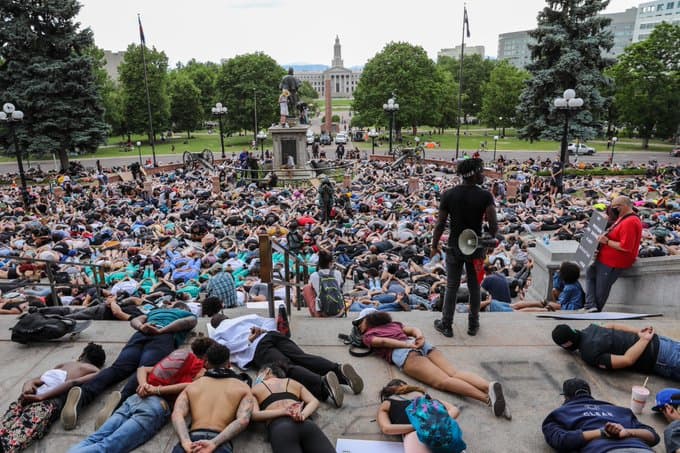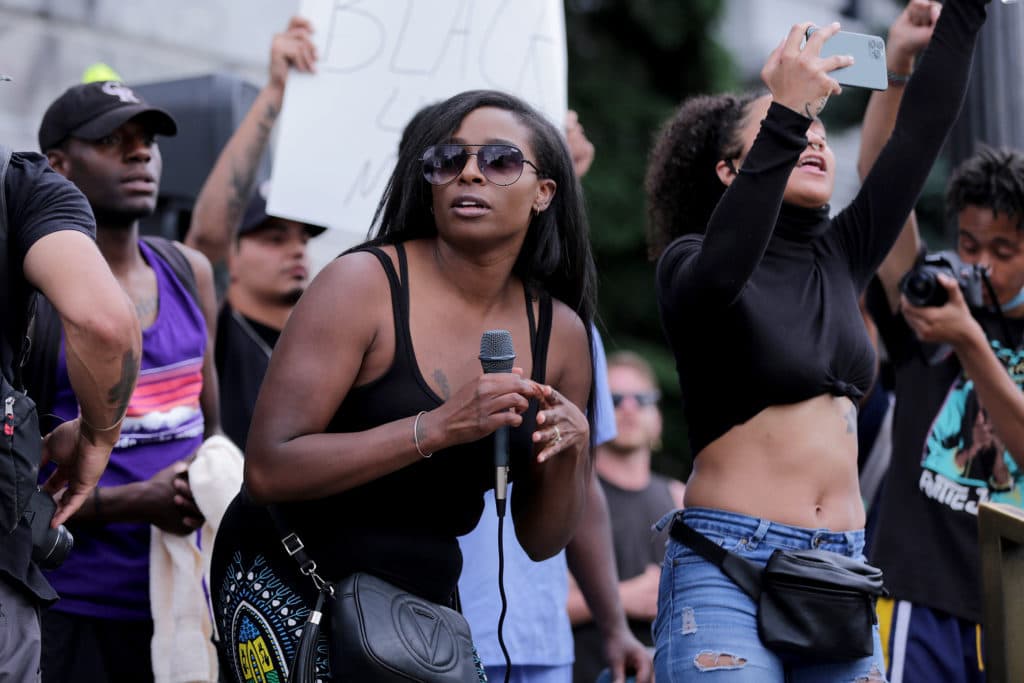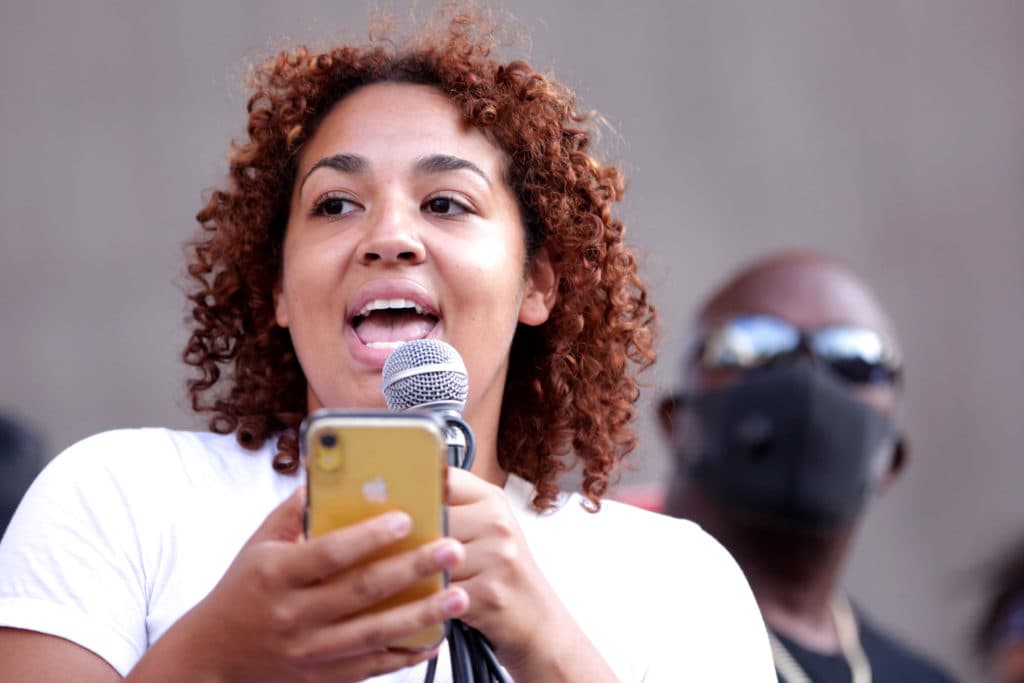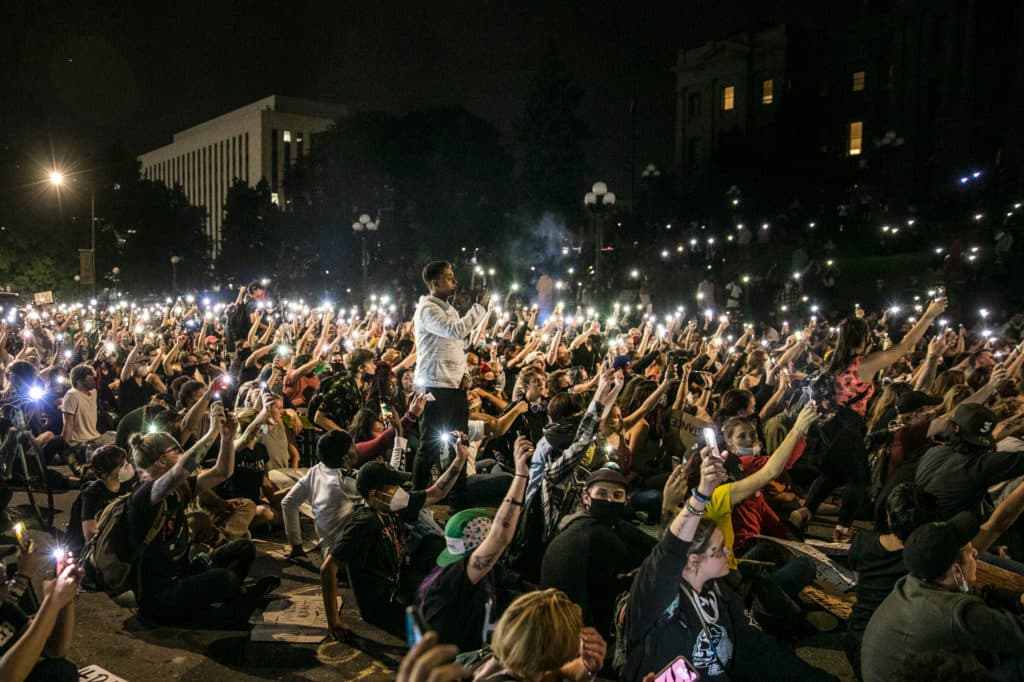Updated 11:15 p.m.
Wednesday was the seventh day of protests in Denver against racism and police violence since the killing of George Floyd in Minneapolis.
Hundreds of people gathered peacefully around the state Capitol starting as early as noon. Protesters staged a "die-in" as part of the official demonstration that started at 5 p.m. They lay face-down with hands on their backs, mimicking the position Floyd was in when an officer knelt on his neck, killing him.
Later, as the group ballooned into the thousands, seated protesters observed a long moment of silence in Civic Center Park. Large crowds stayed put as speeches lasted past the city's 9 p.m. curfew, and just before 10 p.m., protesters blocked Broadway and chanted "Black lives matter." There was a noticeable lack of tear gas and broken windows, as have been seen on other nights in the past week.

In the daylight, protesters marched through the streets, this time with Mayor Michael Hancock arm-in-arm with two demonstrators walking down the 16th Street Mall. As they regrouped at Civic Center Park, speakers took the microphone to address policing and race in speeches that were civil but included opposing points of view about the actions of police over the past week.
Jazzy Middleton and her boyfriend, Princeton Bolton, were in the crowd, and said tonight's demonstration was the beginning of a critical conversation. Middleton said she is a 2020 graduate of the University of Northern Colorado, and that the movement will help pay back the "racial tuition" of being black on a mostly white campus.

Hancock told the crowd he was proud to stand with the protesters, continuing, "But the key is we need to have honest, real conversations about the changes we need to see in our community." Hancock's appearance at the protest follows similar actions by Police Chief Paul Pazen on Monday -- though yesterday, city council members said they were considering an investigation into the police department's use of force during the protests, during which police have regularly employed tear gas, pepper balls, foam bullets and other munitions to control crowds.
After Hancock spoke, a protester got on the microphone and called out Governor Jared Polis for not marching in the streets. Polis said yesterday he supports demonstrators but did not intend to join them, mainly out of concerns about the coronavirus pandemic.
While Hancock received some cheers as he spoke positively about the actions of the police, other speakers directly challenged the mayor and the other city officials who were present. One, Kenny White, called the police an "occupying force."
A member of Hancock's own administration, communications aide Kwon Atlas, told the crowd that officers would start getting fired in order to bring about change. In response, the city's public safety director, Murphy Robinson, tweeted "It is not the job of the mayor's aides nor do they have the authority to decide who gets disciplined in the department of public safety."

One unidentified speaker called attention to the death of William Lamont Debose, who was shot and killed by police in May. The shooting happened outside the public library on West Colfax and Irving Street. The speaker asked protesters to call the office of Denver District Attorney Beth McCann and demand the release of body camera footage from the incident. Earlier this week, a spokesperson for the DA told Denverite, "That matter is still under review and we are working to issue our findings as expeditiously as possible."
As speakers continued past nightfall outside the state Capitol, another group of protesters continued marching through the streets of downtown.
After dark, protesters lit up the night with cell phones and observed a long moment of silence. A memorial service for Floyd is scheduled for 10 a.m. on Thursday in Denver.













